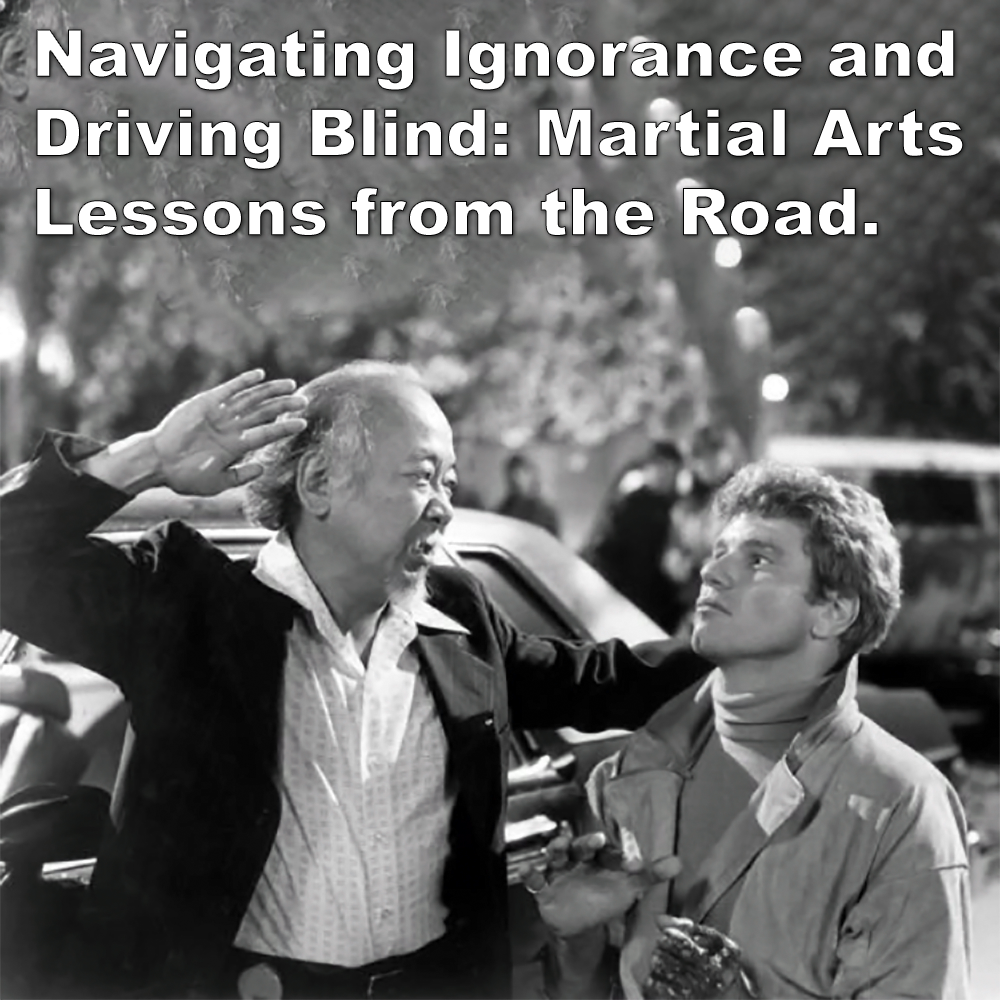
(Approx 2 minute 30 second read)
Personally, I believe that some instructors are unknowingly teaching in the wrong context or teaching ineffective techniques. This issue isn’t just about ignorance – it’s about people who, overestimate their competence.
.
We all know about the McDojo, but there’s another problem: instructors who, often unknowingly, create a dangerous cycle of poor instruction, misguided confidence, and students unprepared for the self-defense realities that many schools advertise.
.
Before moving to the U.S., I was an EMT in the UK, and in an earlier career path, I worked for the police as a pursuit driver, and finally becoming an advanced driver instructor, teaching service members and private individuals. Our training was meticulous because in our line of work, even a small mistake could be the difference between life and death. Today, while running, I saw something that infuriates me: a driving instructor allowed their student to drive straight through a stop sign. No correction, no explanation – just a complete disregard for basic road safety. Sadly, this lax attitude is becoming more common.
.
It struck me how similar this is to what I see in some martial arts schools. Just like that driving instructor, some instructors fail to correct their students or, worse, don’t even realize what they’re teaching is flawed. Whether out of ignorance or complacency, they pass on information that doesn’t hold up. Their students leave the dojo with a false sense of security, unaware that the techniques they’ve learned may fail them when they need them most.
.
The Dunning-Kruger effect explains this perfectly. Instructors who lack deep understanding often overestimate their abilities. They’ve learned the techniques and kata of their style but don’t realize what they’re offering is incomplete or used in the wrong context.
.
This is dangerous for students. Just as that student driver might one day run through a stop sign with possibly devastating consequences, a martial arts student trained by an overconfident, under-qualified instructor could face a real-life situation where their training fails them.
.
The consequences of bad instruction can be dire, especially if their karate is advertised inappropriately as self-defense.
.
Even instructors with years of experience can fall into the trap of believing their methods are sound. Complacency creeps in, just like that driving instructor who didn’t correct a mistake. Over time, this leads to a stagnant learning environment, where students inherit flawed methods.
.
When instructors teach without fully understanding what they’re passing on, it sets off a chain reaction. Students trust their instructors implicitly, believing what they’re learning will work at a time of need. But if the instruction is flawed, students can have a false sense of security. Worse, they may go on to teach others, perpetuating the cycle of poor instruction.
.
In the martial arts, just as in driving, small mistakes can lead to serious consequences.
.
In my opinion, the stakes are too high for mediocrity. Instructors owe it to their students – and to themselves – to strive for nothing but excellence. Teaching isn’t just about passing on information; it’s about ensuring that what you’re passing on is correct, practical, and effective.
.
Just like a sarcastic comment on my recent article said, ‘Is there a Reader’s Digest version of this article?’ I’d say that a picture book with crayons isn’t always the best way to learn – after all, nobody wants to be that person still coloring outside the lines when there’s a world of knowledge to explore! So dig deep and keep learning.
.
Don’t let complacency or ego prevent you from giving your students the quality of instruction they deserve. Anything less is a disservice.
.
.
Written by Adam Carter – Shuri Dojo.
.
